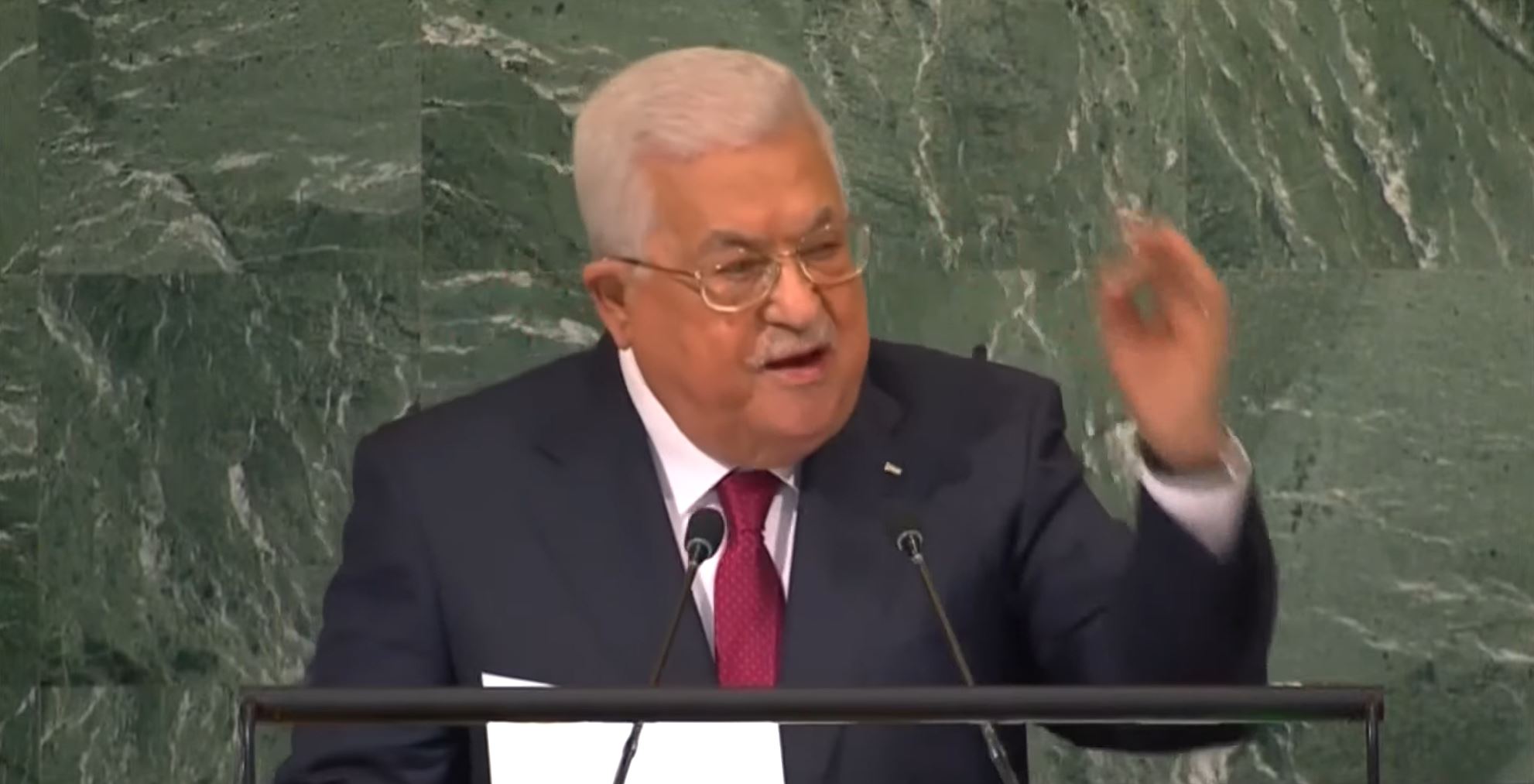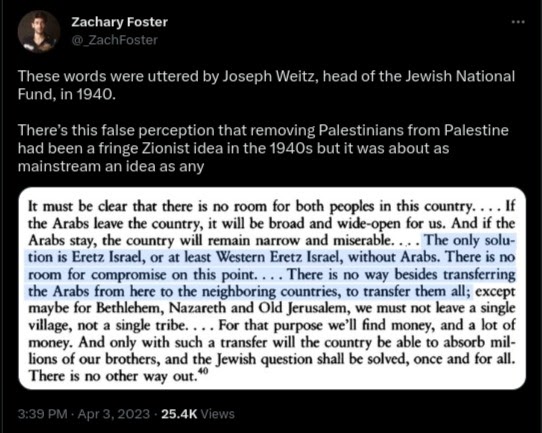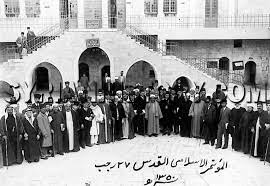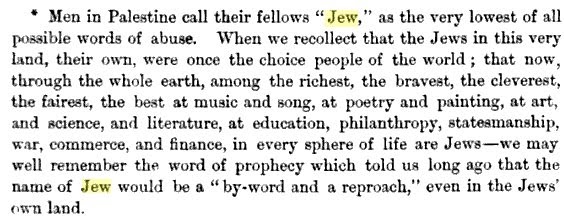Sixties Fan
Diamond Member
- Mar 6, 2017
- 55,975
- 10,685
- 2,140
- Thread starter
- #61
Follow along with the video below to see how to install our site as a web app on your home screen.

Note: This feature currently requires accessing the site using the built-in Safari browser.
Thank you for all of those Israeli talking points.The word “Palestine” is not Arab or Middle Eastern in origin. It dates back some 1,900 years and is derived from a people who were not native to the region: The Philistines, a people from the Aegean Sea who were closely related to the ancient Greeks. They lived on the coast of what is now the Gaza Strip and Israel, but had disappeared by the 6th century BCE.
The name associated with them, however, did not die out. The Romans, in a fit of spite, reapplied the term “Palestine” to the Land of Israel centuries later, after they defeated a Judean uprising in 135 CE.
In effect, the Romans sought to erase the association between the Land of Israel and the Jewish people.
The “Palestine” moniker continued to be used long after the Roman Empire fell. When Muslim armies conquered the region in 629 CE, they Arabized the name to “Filastin.” This term cannot be found in the Quran, while the name “Israel” is mentioned several times.
The regional name “Palestine” endured. During the Middle Ages, it became common in early modern English and was employed by the Crusaders. But for nearly 2,000 years, it never referred to a country or a group of people.
In short, for most of recorded history, there were never any “Palestinians.”
After World War I, the modern contours of “Palestine” were established. The British Mandate for Palestine originally consisted of present-day Israel, Gaza, Judea and Samaria, and Jordan.
During the British Mandate period, the term “Palestinian” usually referred to Jews living in the Mandate, as well as their institutions.
Before Israel was founded, several prominent Jewish and Zionist organizations used the name “Palestine.” These included The Palestine Post newspaper and the Palestine Symphony Orchestra, which are now The Jerusalem Post and the Israel Philharmonic Orchestra.
At the time, many Arabs in British Mandatory Palestine considered themselves part of Greater Syria rather than “Palestinians.” In 1937, a local Arab leader told the Palestine Royal Commission, “There is no such country [as Palestine]. Palestine is a term the Zionists invented! Our country for centuries was part of Syria.”
Arab historian Philip Hitti echoed this sentiment shortly before Israel declared independence, saying, “There is no such thing as Palestine in history, absolutely not.”
The watershed moment for the “Palestinian” national movement came after the 1967 Six-Day War, when Israel won control of Judea and Samaria from Jordan. The words of author Walid Shoebat of Bethlehem sum up the profound shift in local Arabs’ identity: “On June 4, 1967, I was a Jordanian, and overnight I became a Palestinian.”
Since 1967, a whole national mythology has been created around the terms “Palestine” and “Palestinian.” For example, the Palestinian Arabs have claimed to be descendants of the Canaanites who preceded the ancient Israelites and Philistines in the Holy Land.
In 2018, Palestinian Authority chief Mahmoud Abbas told the United Nations’ Security Council, “We are the descendants of the Canaanites that lived in the land 5,000 years ago and continued to live there to this day.”
But most Palestinians trace their origins to prominent tribes in Saudi Arabia, Syria, Iraq, Yemen and Egypt. Yasser Arafat was born in Egypt. Even the Kanaan family in Nablus (Shechem) traces its ancestry to Syria. In any case, the Canaanites had disappeared more than 1,600 years before the Arabs first arrived in the Holy Land.
Preposterously, Palestinians have even asserted that Jesus was a Palestinian. In a 2013 Christmas message, Abbas called Jesus a “Palestinian messenger.” In 2019, Palestinian-American activist Linda Sarsour posted on Twitter, “Jesus was a Palestinian of Nazareth.”
We beg the pardon of Mr. Abbas and his fellow fantasists, but Jesus was a Jew from Judea, which was named Judea because it was and still is the homeland of the Jewish people.
While the Arabs of the region are free to call themselves whatever they want, they are not free to hijack the 3,000-year history of the Holy Land for themselves. In the end, the name “Palestine” represents the Jews’ original dispossession of their homeland 1,900 years ago.

How the Palestinians got their name - JNS.org
The Palestinians can call themselves whatever they want, but they cannot hijack 3,000 years of history.www.jns.org
Thank you for all of those Israeli talking points.
Thank you for all of those Israeli talking points.
Dr. Rashid Khalidi, "The Hundred Years' War on Palestine"
Dr. Rashid Khalidi, "The Hundred Years' War on Palestine"
Tinmore knows all of that. He like to be repetitious. Proof of a Palestinian history? None. He has never shown any, and never will.Arab Professor Philip Hitti: Palestine never actually existed. It’s a name associated with Jews!
View attachment 772663





The automatic, ipso facto, change from Ottoman to Palestinian nationality was dealt with in Article 1, paragraph 1, of the Citizenship Order, which declared:Finally, the biggest lie in the anti-Israel catalogue of slanders was referenced in Kirkpatrick’s statement. Just recently, the Biden administration has publicly condemned an Israeli minister for saying that “there is no such thing as Palestine because there is no such thing as a Palestinian people.” Of course that statement is historically true.
In fact, as Sha’i ben-Tekoa documents in his three-volume study Phantom Nation, the first UN resolution referencing “Palestinians” instead of “Arabs” occurred three years after the Six Day War, marking the international recognition of a “Palestinian people” and nation as yet another Arab tactic in gaining support in the West by exploiting an idea––nationalism––alien to traditional Islam. Before then “Palestinian” was a geographical term, more typically applied to Jews. Numerous quotations from Arab leaders reveal not a single reference to a Palestinian people, but numerous ones identifying the inhabitants of the geographical territory Palestine as “Arabs.”
For example, in 1937, Arab Higher Committee Secretary Auni Abdel Hadi said, “There is no such country as Palestine. ‘Palestine’ is a country the Zionists invented. ‘Palestine’ is alien to us.” The Christian Arab George Antonius, author of the influential The Arab Awakening, told David Ben-Gurion, “There was no natural barrier between Palestine and Syria and there was no difference between their inhabitants.” Later in his book he defined Syria as including Lebanon, Palestine, and Jordan. In testimony to the UN in 1947, the Arab Higher Committee said, “Politically the Arabs of Palestine are not independent in the sense of forming a separate political identity.”
Thirty years later Farouk Kaddoumi, then head of the PLO Political Department, told Newsweek, “Jordanians and Palestinians are considered by the PLO as one people.” A few years, after the Six-Day War a member of the Executive Council of the PLO, Zouhair Muhsin, had been even more explicit: “There are no differences between Jordanians, Palestinians, Syrians and Lebanese. We are all part of one nation. It is only for political reasons that we carefully underline our Palestinian identity . . . Yes, the existence of a separate Palestinian identity serves only tactical purposes. The founding of a Palestinian state is a new tool in the continuing battle against Israel.”
Clearly, the continuing statements about a Palestinian people as a distinct nation that deserves its own borders and sovereign territory have been a tactic for pursuing the eradication of Israel by casting the struggle in Western terms of “national self-determination” and the struggle against neo-imperialism.
That the West has endorsed and legitimized this lie for nearly 80 years is perhaps its worst mistreatment of Israel and its people. At a time when Israel is facing internal division, riots, terrorist attacks, an enemy on the brink of acquiring nuclear weapons, and one American political party that sympathizes with Palestinian Arabs more than with Israelis, Biden’s meddling in Israel’s domestic policies, and harping on “settlers” living in their ancestral homeland, are despicable. And that’s no way for a great nation to treat a friend and ally.
(full article online)

No Worse Friend: The West’s Treatment of Israel | Frontpage Mag
Meanwhile the enemies who have sworn to wipe Israel off the map are courted and indulged.www.frontpagemag.com
“Turkish subjects habitually resident in the territory of Palestine upon the 1st day of August, 1925, shall become Palestinian citizens.”
You cut and paste that from thread to thread ever understanding it.The automatic, ipso facto, change from Ottoman to Palestinian nationality was dealt with in Article 1, paragraph 1, of the Citizenship Order, which declared:

According to Pappe's abstract, the main reason an Arab university was not established was British racism. Yet even he admits that the British allowed other Arab institutions of higher learning to be established in Palestine.This article asks, why was there no Arab university in Mandatory Palestine (while there were two Jewish universities). Apparently, the colonial mentality of the British authorities who deemed the Palestinians yet another colonized people who had to be oppressed, while regarding the Zionist settlers as fellow colonialists, feared that such a university would enhance the Palestinian national movement. At the same time, Zionist pressure, British anti-Arab racism, and lack of resources also combined to undermine the emergence of a proper Palestinian higher education system.
After the Buraq disturbances, some members of the Palestinian political leadership and most notably Mufti Hajj Amin al-Husayni attempted a different path. It was in the wake of the All-Islamic Congress convened in Jerusalem in 1931 that the real efforts to open such a university began in earnest in 1932. The coordinating committee of the All-Islamic Congress sent delegations to Egypt, Iraq, Afghanistan, and India for fundraising for an Islamic University in Jerusalem.
... [British] opposition was not the only reason that the idea of the Islamic university in Jerusalem petered out. Unfortunately, these fundraising missions, particularly the mufti’s long fundraising trip to Iraq and India in 1933, were not successful in raising the funds necessary to establish a university in Jerusalem. Nor was there enough interest among activists in convening a second congress in the city, and that led to the collapse of the organizational capacity of the World Islamic Congress by the end of 1934.48 Although the local press constantly mentioned the idea of reviving the university project and holding another congress in Jerusalem in the years that followed, those plans came to nothing and were soon forgotten. As mentioned, even after the mufti’s escape from Palestine in 1937, he was still involved in the efforts until 1940; soon after he also lost interest in the project.
The entire purpose of the university was to help the Mufti's power base as well as to oppose the Hebrew University of Jerusalem, which had attracted prestige very quickly. But it was also a means to make land unavailable for Jews to buy, as Pappe notes:The news that the [Islamic] conference would support the creation of an Islamic university in Jerusalem was seen as a direct threat to the dominating status of al-Azhar as the most prestigious university in the Islamic world. Thus, for example, Muhammad Bakhit, former Mufti of Egypt, in his public statement against the conference, also criticised the 'dreams' of those who pretended to establish a new university which would become the new scientific centre of the Muslim world. The loud opposition of al-Azhar to the conference must have also affected the cautious reaction of the opposition parties in Egypt. Although they might have been eager to use it as a stage to attack Sidqi's regime, Wafdist and Liberal leaders, being Egyptian nationalists, could not accept the eventuality that a non-Egyptian caliph would be nominated at the conference. Similarly, these leaders opposed any alleged attempt to erode the prestige of al-Azhar as the most respected centre of Islamic teaching. Even Egyptian advocates of the Palestinian Arab cause, such as Muhammad Ali Alluba and Ahmad Zaki, called for its postponement.
Some funding did come through. The nizam (ruler) of Hyderabad donated one million rupees. ...That sum of money was used to buy land in the Tulkarm district that was endowed as a waqf for the future university. At least in this respect, the mufti could have been satisfied; he prevented the sale of the land coveted by the Zionist movement and ensured a future investment for the university. Alas, it was a short-lived victory as the village (Raml Zayta/Khirbat Qazaza) was destroyed in 1948 and on its ruins Jewish settlements were built and the university was not established.
This nexus between endowment, struggling against Zionist purchase of land, and the university enthused also Christian activists in the national movement. Members of the Christian Orthodox community were prepared to do more than send words of congratulations. Most notable in this respect was ‘Isa al-‘Isa, the editor of Filastin, who sent the World Islamic Congress a proposal outlining a scheme for saving Palestinian lands from the Zionists by creating endowments on the coveted land...

That paper describes friendships between Wasif Jawhariyyeh's family and some Jewish families in the beginning of the 20th century. The Jawhariyyeh family was Christian.The Jawhariyyeh diaries invite the reader to share a world of ceremonial syncretism and cultural hybridity that is difficult to trace in today‘s prevailing atmosphere of ethnic exclusivity and religious fundamentalism. It was a pre-nationalist era in which religious identity embraced the Other in its festivals and rituals. Jawhariyyeh narrates the feast of Easter/Pessah as an occasion for Muslim-Christian-Jewish celebrations. He details the Muslim processions of Palm Sunday (which proceeded from the Abrahamic Mosque in Hebron towards Jerusalem). The festival of al-Nabi Musa is recalled here as a Muslim popular celebration that merges with the Christian Orthodox Easter. The fantasia of Sabt al-Nur (Fire Saturday, commemorating the resurrection of Christ) is seen as the greatest popular Christian celebration in Palestine—closely coordinated with Muslim folk festivals. Purim was celebrated by Christian and Muslim youth in Jewish neighborhoods. Wasif describes in detail the costumes they wore on this occasion. Twice a year Muslim and Christian families—including the Jawhariyyeh family—joined the Jewish celebrations at the shrine of Simon the Just in Sheikh Jarrah (at the event known as ‘shathat al-Yahudiyya), where "Haim the ‘oud player and Zaki the tambourine player would sing to the accompaniment of Andalusian melodies."
The Jews at Jerusalem, (I speak even of European Jews) are liable to be stopped by the lowest of the country, who, if he pleases, may demand money of them as a right due to the mussulman ; and this extortion may be practised on the same poor Jew over and over again in the space of ten minutes.
The Jews are fond of frequenting the tombs of their forefathers, especially on particular days, to read their prayers of remembrance of the dead. Here advantage is taken of them again. They are rudely accosted and pilfered, and if resistance is made, they are beat almost to death, and this not by common highwaymen or Bedouin Arabs, but by men they may have been in the habit of seeing and talking with every day.
In times gone by these native Jews had their full share of suffering from the general tyrannical conduct of the Moslems, and, having no resources for maintenance in the Holy Land, they were sustained, though barely, by contributions from synagogues all over the world. This mode of supply being understood by the Moslems, they were subjected to exactions and plunder on its account from generation to generation (individuals among them, however, holding occasionally lucrative offices for a tune). This oppression proved one of the causes which have entailed on the community a frightful incubus of debt, the payment of interest on which is a heavy charge upon the income derived from abroad.
…Notwithstanding these glimpses of honorary distinction the Jews are humiliated by the payment, through the Chief Rabbi, of pensions to Moslem local exactors, for instance the sum of 300£. a year to the Effendi whose house adjoins the ' wailing place,' or fragment of the western wall of the Temple enclosure, for permission to pray there; 100£. a year to the villagers of Siloam for not disturbing the graves on the slope of the Mount of Olives ; 50£ a year to the Ta'amra Arabs for not injuring the Sepulchre of Rachel near Bethlehem, and about 10£ a year to Sheikh Abu Gosh for not molesting their people on the high road to Jaffa...

This Jewish population is poor beyond any adequate word ; it is degraded in its social and political condition, to a state of misery, so great, that it possesses no rights. It can shew no wealth even if possessed of it, because to display riches would secure robbery from the Mahometan population, the Turkish officials, or the Bedouin Arab. ... He creeps along that soil, where his forefathers proudly strode in the fulness of a wonderful prosperity, as an alien, an outcast, a creature less than a dog, and below the oppressed Christian beggar in his own ancestral plains and cities. No harvest ripens for his hand, for he cannot tell whether he will be permitted to gather it. Land occupied by a Jew is exposed to robbery and waste. A most peevish jealousy exists against the landed prosperity, or commercial wealth, or trading advancement of the Jew. Hindrances exist to the settlement of a British Christian in that country, but a thousand petty obstructions are created to prevent the establishment of a Jew on waste land, or to the purchase and rental of land by a Jew. “
...What security exists, that a Jewish emigrant settling in Palestine, could receive a fair remuneration for his capital and labour? None whatever. He might toil, but his harvests would be reaped by others; the Arab robber can rush in and carry off his flocks and herds. If he appeals for redress to the nearest Pasha, the taint of his Jewish blood fills the air, and darkens the brows of his oppressors ; if he turns to his neighbour Christian, he encounters prejudice and spite ; if he claims a Turkish guard, he is insolently repulsed and scorned.
,,,Now, how is this poor, despised, and powerless child of Abraham to obtain redress, or make his voice heard at the Sublime Porte? The more numerous the cases of oppression, (and they are many), the more clamorous their appeals for justice, the more unwillingly will the government of the Sultan,—partly from inherent and increasing weakness, partly from disinclination,—act on the side of the Jew. They despise them as an execrated race ; they hate them as the literal descendants of the original possessors of the country. ...
On Saturday, April 14th [1866], after the morning service, I took a walk round the garden, and was much pleased with the improvement of the place since my last visit to Jerusalem.
I regret, however, not being able to report the same of the land at Jaffa, which has been unfortunately let topersons who, being unable to resist the threatened attacks of the neighboring Arabs, deserted the place altogether. The consequence is, that the houses are completely demolished and the trees destroyed.


I list other examples of attacks on Jews, including pogroms, here.The Jews at Jerusalem were singularly forbearing with strangers, and—considering their general antipathy to all Gentiles—were almost civil and obliging. This unnatural good-will might perhaps be due in part to my escort, the well-known Yakoob ; perhaps, too, in part to their own despised condition, for, scarcely tolerated and often persecuted as they are by their Muslim rulers, they dare not show an illiberal spirit, or display any tokens of religious hostility or rancour through fear of retaliation
Many more listed here, including in 1911: September 23: Arabs assault about sixty worshippers at religious service on Rosh Hashanah at Wailing Wall.August. Bedouins attack colony of Rehobot, killing one colonist and wounding several others. --Rehobot vineyards penetrated by villagers from Zernuka, who kill Jewish student.
November. At colony of Kinneret two Jewish watchmen murdered by Arabs.
December. Near Tiberias, two colonists killed and several injured by Arabs.
January. At Hebron, Jewish storekeepers are boycotted by Mohammedan women.
April. Minister of Interior removes Governor of Tiberias on complaint of Chief Rabbi of his laxity in protecting the Jews against Arab attacks.
May. Minister of Interior orders officiais in Palestine to repress all anti-Jewish manifestations.—Chief Rabbi waits on Minister of Interior and reads to him two violent articles in Arab journal Palestine, and warns him that any disorders that might result therefrom would create bad impression abroad.
